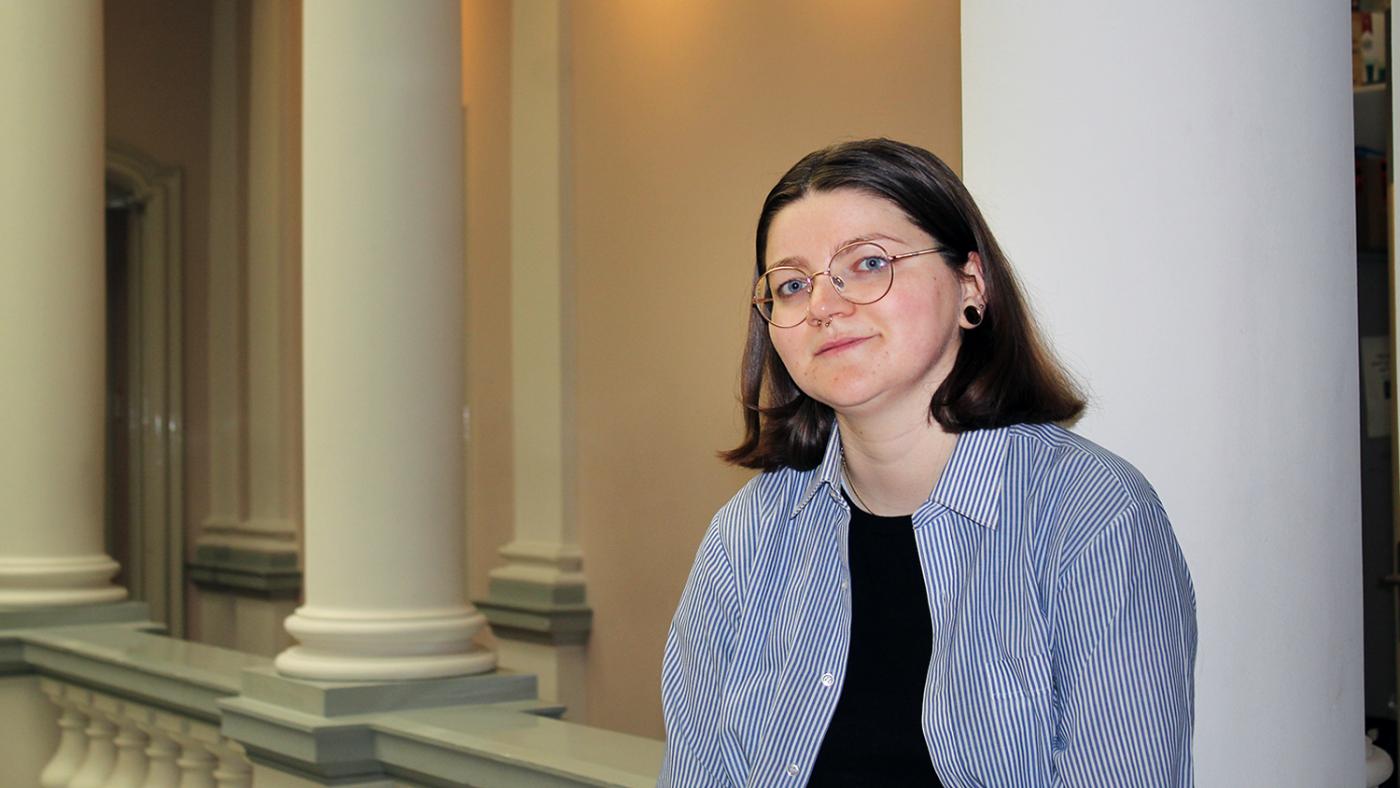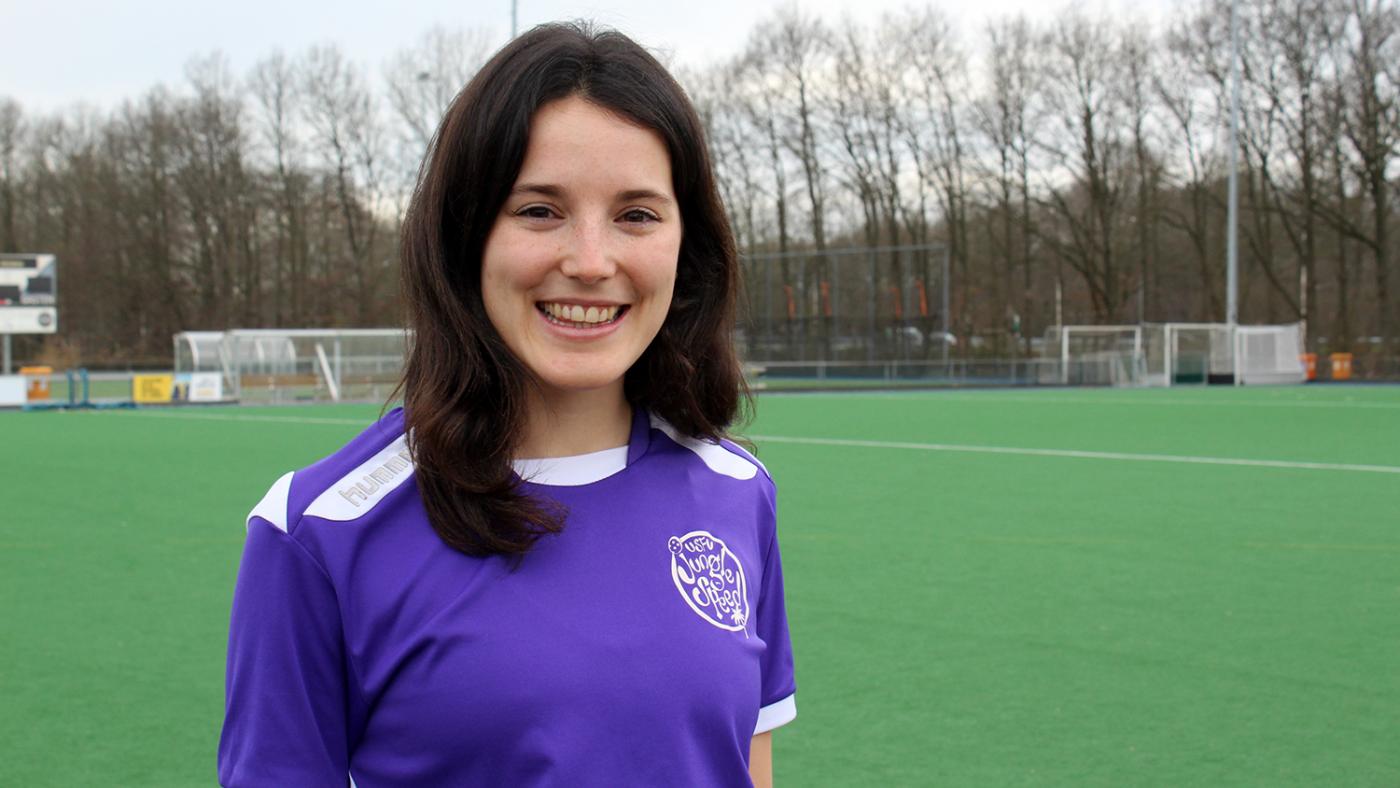Three Perspectives on Learning Dutch
‘Knowing the language has made me feel more included and at home’

Dorka learned Dutch with a teacher

"Finding housing will definitely be easier when speaking Dutch"
"People say that I’m good at learning languages”, says Dorka, a first-year Pharmaceutical Sciences student from Hungary. After attending a linguistics Olympiad and hearing the Dutch team speak, she became interested in the language. She believes that apart from the good universities, her appreciation for the language played a role in choosing the Netherlands as a place to study.
Having started, like most students, with Duolingo, Dorka progressed to studying with a teacher once a week and reached B1 level. Although she has paused Dutch classes for now, she focuses on maintaining her Dutch abilities by reading and using the language daily. “I use English when it’s something very important that I cannot misunderstand. Otherwise in the stores I use Dutch.”
Dorka believes that the easiest thing about the language is a relatively simple grammar structure. “I understand grammar rules and memorise them quite quickly.” On the other hand, understanding spoken Dutch is hardest for her: “Dutch people tend to speak rather quickly”. An additional challenge is the “ch” of “g” sound.
Speaking Dutch has opened up opportunities for her. “I think that finding housing will definitely be easier when speaking Dutch.” It also helped helps her with integration. “I noticed other international classmates being annoyed at nationals speaking Dutch. At least I understand what they are saying.” Although she has Dutch friends, they speak English to each other. “My spoken Dutch is not good enough for that.” Because of that, Dorka had planned on continuing to study Dutch, but “my motivation is low” she says. “Everyone here speaks English. Maybe I should learn other languages instead.” Still, she is hoping to one day reach C1 level. “It is harder to express yourself in a language you are not as well versed in.” This will also help her keep her future flexible. “If the political situation in Hungary does not get better, it's likely that I will stay here.”
She recalls occasionally embarrassing herself by forgetting words and switching to English when Dutchies do not understand her. Often, Dutch people are the first to switch to English when they realize that she is still learning. “I don't get offended by it, but it is nicer when they don’t notice or notice that I want to practice. It does annoy me though.”
She delights in the fact that her family back home is proud of her for learning a new language. Overall, Dorka has found learning Dutch to be a rewarding experience that has allowed her to connect with the people and culture of the Netherlands. "I think it's really important to learn the language of the country you're in. It helps you understand the people and the culture better."
Anna taught herself Dutch by watching tv

"When I tried to get my bike fixed, I only spoke Dutch"
Anna took a more relaxed approach to learn Dutch. Never having formal lessons, she taught herself by watching the news and TV shows, as well as utilizing textbooks and listening exercises. Being a third-year student of English Language & Culture with an interest in linguistics, they enjoy the acquisition of new languages. “Language classes in school were my favourite classes.” Believing it to be customary to know the language of the country one lives in, she decided to give Dutch a go, estimating herself to be at B1 level now.
However, she believes that she could do more to maintain her level. According to Anna, Dutch is quite colloquial, making it easier to learn, but sentence structure is hard, and grammar is “all over the place.” Speaking Dutch in public is something they only do when they have patience, having a tendency to fall back on English for shorter conversations. “Maybe it’s just easier, maybe it’s a thing of habit.” Although she has Dutch friends, they speak English with each other. “Sometimes I actively try to only speak Dutch in public, like when I tried to get my bike fixed.”
Being from South Tirol, her mother tongue is German. “I do recognize my privilege - speaking German has made this much easier for me.” However, in their opinion, equating German and Dutch with each other should be avoided as it will only cause confusion.
Despite Anna's imperfect Dutch, she is grateful that Dutch people do not switch to English when they hear her accent. “They seem happy to see a foreigner speaking Dutch.” She believes that speaking Dutch has made her life much easier, especially when it comes to comprehending signs and government websites. Speaking the language has also brought opportunities, such as an internship at a school and an easier time being a barista and interacting with customers. They love all the diminutive: “They make this a cute language.”
Never feeling pressure to speak Dutch, they have always felt very accommodated. “Maybe it doesn’t pressure me enough to be more proficient, I could have learned more for the time that I have spent here.” Anna has considered doing a minor in Dutch, which would incentivize her to study it more. Combined with their desire to stay in the Netherlands after studying, being fluent in Dutch would have many advantages. Anna’s tips for new learners are to "read a lot, that is always very important. Also, build a habit."
Angela followed courses at the Volksuniversiteit

‘Almost all members of my sport association are Dutch’
Angela is half Spanish and half French, having lived worldwide before moving to Utrecht to pursue her master’s degree. “In most places, I really enjoyed the experience, but I felt like I was lacking something,” which gave her the idea to learn Dutch. After having lived in Finland for an exchange, she wanted to experience something warmer and closer to her home city, Barcelona. The bike culture intrigued her, and she decided to move to the Netherlands. Despite the added workload, she found it valuable to learn Dutch, and her main motivator was an interest in the language.
Angela enjoys learning vocabulary and slang from her Dutch friends. Although she finds grammar to be challenging due to the many exceptions, she tries to speak Dutch as much as possible in public. However, despite her increasing confidence, when she is stressed or in a rush, she switches to English. She is proud that now, when Dutch people hear her speak, they no longer switch back to English. To her, “If I really want to integrate and maybe stay longer and work here later, language is very important.” She hopes to eventually become fluent. In the past, if Dutch people heard her accent or noticed that she was struggling, they would switch - “that is of course very annoying”.
Having studied Dutch for two and a half years, she is currently at the B2 level. She takes Dutch lessons once a week at the Volksuniversiteit and practices her language skills by being a member of a sports association, training twice a week. With almost all members being Dutch, integration becomes easier. She also reads Dutch books, listens to podcasts, and watches TV shows to improve her language skills.
Studying Bioinformatics & Biocomplexity, the field of science is already English-dominated and would not require Angela to know Dutch. Socially, on the other hand, knowing the language has made her feel more included and at home. Angela hopes to become fluent and advises Dutch-learning students to join social circles, such as sports associations, to have the motivation to practice and learn new vocabulary consistently.
Angela noticed that her international friends wish they had invested more time in learning Dutch - “they can now feel the difference, with them not feeling as much at home here as I do.” Although her Dutch friends are impressed, there is still insecurity. “Sometimes I do feel a bit embarrassed, what if people think that I’m stupid because my Dutch isn’t so good?” she wonders.
Her tip for Dutch-learning students is to join social circles, such as her sports association. Not only does it help with practicing and picking up new vocabulary, but it is also a consistent motivator. “In this country, it's not too hard to get by with just English, but if you find a nice group of Dutch friends, they will help you learn.”